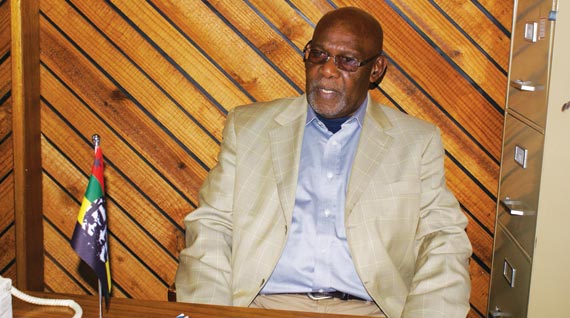
OVER the last few days I received several questions on whether or not Zapu was participating in the ceremonies that were held to honour our founding president Joshua Mqabuko Nkomo (okaNyongolo).
These questions were mostly posed against the backdrop of the choice of Unity Day December 22 2013 to officially inaugurate the Joshua Mqabuko Nkomo International Airport and the unveiling of the statue of Nkomo, both in Bulawayo.
There is no doubt that Joshua Mqabuko Nkomo was a decisive influence on the politics of Zimbabwe, shaping and responding to the hopes of the black majority oppressed by successive racist Rhodesian minority administrations.
Nkomo’s role in the growth of the nationalist movement and in inspiring the waging of the armed struggle for liberation is, therefore, second to none.
The combined honours to Nkomo’s memory and legacy are welcome, both to the country and to Bulawayo.
They are highly deserved and not a favour from anyone. These two memorials come more than a dozen years after his passing away in 1999.
It is a great puzzle that although the decision to erect a statue in Bulawayo was taken many years ago, the completion of this overdue tangible tribute has only come now.
This delayed honour is even more remarkable and inexplicable now when even Nkomo’s former detractors find it necessary to call him “Father Zimbabwe”.
- Chamisa under fire over US$120K donation
- Mavhunga puts DeMbare into Chibuku quarterfinals
- Pension funds bet on Cabora Bassa oilfields
- Councils defy govt fire tender directive
Keep Reading
There was a time when this nationalist giant was vilified as “Father of Dissidents” and his perceived supporters were harassed, detained and in some instances summarily killed particularly in the unresolved Gukurahundi genocidal campaign of the early 1980s.
Last week a Zapu delegation went to the events in South Africa where there was simultaneous outpouring of official and public sadness as well as celebration of the heroic life of Tata Nelson Rolihlahla Mandela.
A day after “Madiba” was buried, his statue was standing at the Union Buildings in Pretoria, the seat of government.
We could not help feeling the heavy contrast because our country, which attained majority rule much earlier and whose acclaimed founder died much earlier, was slower in launching visible tributes to its great son. Future generations may puzzle on this contrast.
There is a lot of ambivalence in recognition of Nkomo as the pre-eminent figure in Zimbabwe’s nationalism and as an embodiment of our people’s determination to achieve liberation and human rights by any means necessary, including the armed struggle that changed the balance of power against racist forces.
Part of the explanation lies in the use and abuse of the notion of “unity”. At the fifth Zapu congress in 1975, and the sixth Zapu congress in 1984, Nkomo aptly said: “True unity is the unity of the people.”
He consistently fought for unity of the people, in which there are equal rights and opportunities for all.
This vision was not only for post-independence reconstruction and development, but also a guiding light for Zapu as it waged the armed struggle
In this regard, some of the attempts which Zapu made during the liberation struggle to bring about unity of liberation forces (Zapu and Zanu), include the formation of the Joint Military Council, Zimbabwe People’s Army and finally the Patriotic Front.
In spite of Nkomo’s efforts, PF Zapu and Zanu PF did not campaign together for independence elections in 1980 because Zanu abandoned the Patriotic Front.
As is well-known, Nkomo had a torrid time soon after independence because his party was an alternative to the ruling party. Zapu was coerced into a lopsided “unity” with Zanu in 1987 which its leader saw as a necessary sacrifice to stop repression aimed at his supporters.
After its revival in 2008 as an independent entity, Zapu has been championing the cause of true unity of the people, that is, unity based on the principle of equal rights.
We believe that this is the only durable foundation for peace, recognising that people have equal rights irrespective of their race, ethnicity, language, sex, religion, political affiliation and other affiliations and attributes.
In our current circumstances it is necessary also to ensure balanced and equitable development for all parts of the country
That is why during the constitution-making process Zapu submitted devolution of power to five provinces (the Midlands, Mashonaland, Masvingo, Manicaland, and Matabeleland) and also championed the principle of equal rights as well as an electoral system based on proportional representation in electing the members of the National Assembly.
We now have an emasculated version of devolution of power where a powerful centre still controls well over 90% of resource allocation and makes key appointments in the provinces.
Key pieces of legislation from the past have yet to be removed, among other shortfalls.
The powers that frustrated Joshua Nkomo at his prime have yet to be trimmed. The struggle continues.
Dumiso Dabengwa is Zapu president










